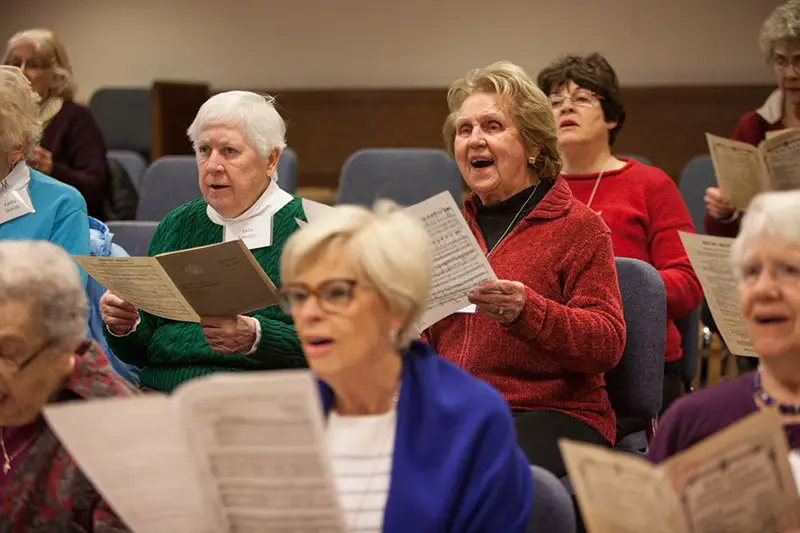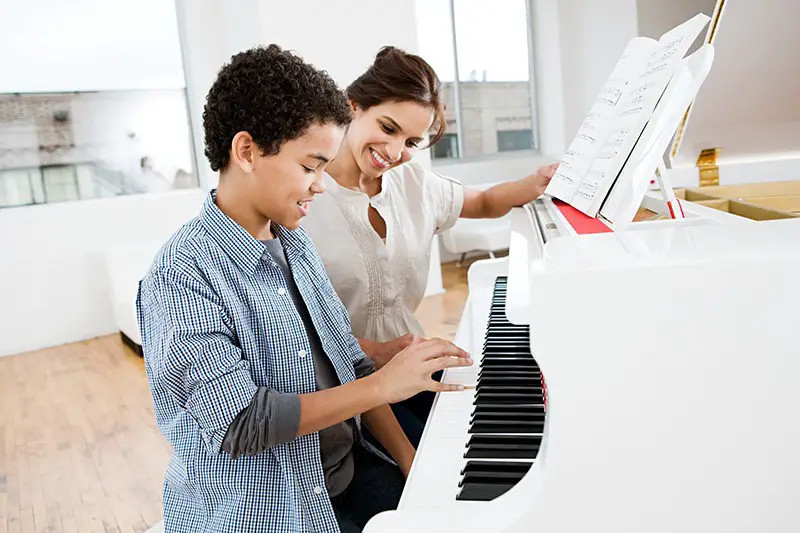For many, getting older means getting wiser and being able to understand the world from a different perspective. You become more patient when dealing with difficult situations. You begin to realize what’s really important in life, and start putting more value in what makes it meaningful.
It may also mean having to deal with fear, pain and uncertainty, usually brought about by loss–loss of good friends and loved ones, as well as loss of some motor and cognitive functions. Body parts start to hurt and memory starts to fail. These can result in loss of confidence and feelings of anxiety, despair and agitation.
One can say it’s part of the cycle of life–you gain some, you lose some.
But there are things that stay and can become a constant source of comfort amid the uncertainty that comes with aging. Most important of these is a good support system that can help you power through your senior years.
Another is music. Learning music provides a number of important benefits to people as they age. You can start by buying a cheap guitar and then taking some lessons to get you going.
Older adults may first become apprehensive at the idea of learning a new skill, fearing they’re too mature or incapable of storing and retaining new information. This is completely understandable–even much younger adults tend to think they’re too old to learn to play an instrument.
As it turns out, the more you participate in music learning activities, the better you’ll be able to maintain your physical abilities, mental faculties, and emotional well-being as you advance in years. This can bring about improved overall health. Several research studies have shown this to be true.
Here’s a closer look at the many ways music education benefits you as you get older.

Physical Health Benefits
In a U.S. study covering three cities, researchers have found that participation in music programs by senior citizens can result in fewer doctor visits, more positive responses on mental health measures, less medication usage, more involvement in other activities, and better health overall.
In interviews for a study in Australia, seniors who participate in music learning activities have reported feeling a sense of good health and well-being due to their musical participation. One participant stated that music was stimulating for her brain, and that it kept her functioning and thinking well.
The researchers observed that music participation became a way to slow down the aging process somehow, because music kept the seniors occupied and focused. Another participant even said that music gave him a youthful outlook on life.
There is also evidence showing that playing an instrument contributes to the maintenance of cognitive-motor skills and other bodily functions. For instance, those who learn piano maintain cognitive agility and finger dexterity, and those who learn brass or wind instruments maintain and even improve respiratory and circulatory functions.
When you learn to play music, you become more active, which helps you maintain your muscle tone and physical stamina. It keeps your body agile, which leads to better heart health, improved respiratory function, and minimized pain from conditions such as arthritis.
Learning music also stimulates parts of the brain, keeping your mind sharp and slowing the decline of cognitive skills, such as memory retention and recall.
Mental/Psychological Health Benefits
Studies have also suggested how learning music contributes to the mental health or psychological well-being of older adults, especially during and after the transitional years of retirement. Through participation in music classes, seniors are able to increase their self-understanding and self-worth as they achieve success at meeting music learning goals.
Learning music also lets older adults participate in experiences that are interesting and rewarding, such as joining a band and performing in group recitals and concerts. Music making also helps seniors express themselves in a creative manner and cope better with daily stress.
Some of the most notable psychological benefits received by older adults through learning and playing music are strong feelings of pleasure and enjoyment, a heightened sense of vitality, and an uplifting of the spirit. Active music making has also been found to help seniors achieve feelings of satisfaction, contentment, peace, and inner happiness.
Overcoming the challenges of learning new musical skills also gives seniors a sense of accomplishment and pride, giving them greater self-confidence. All of these psychological and mental benefits have been shown to enhance the quality of life of senior citizens.

Social Benefits
Music can facilitate and encourage social interaction. Learning music can provide a means of establishing meaningful social connections with others, even if you come from different generations. There’s a sense of community that comes with learning to play an instrument, and the sharing of knowledge and skills can bring people from different backgrounds and age groups together.
Playing music with people of the same generation can also help older adults find friends and form close, personal bonds. This can enhance the feelings of pleasure and enjoyment that come with music making.
Being part of a group that learns and plays music together also provides senior adults with a heightened feeling of inclusion and belonging, which is crucial at a time when you feel isolated or without support.
Conclusion
Music learning offers several benefits to people as they get older, in all areas of their lives. Playing an instrument can help you stay physically and mentally healthy, find enjoyment by yourself or with others, and give you a sense of accomplishment with every note you play. Playing music you love is also comforting, and something you can always turn to when things get rough.
In summary, learning music can improve your overall well-being and quality of life as you get older, and it’s never too late to start.



